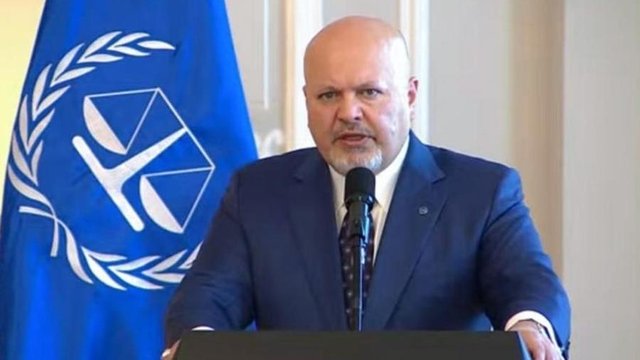ICC prosecutor on investigation into Russian war crimes in Ukraine: No doubt that we will see result

The Prosecutor of the International Criminal Court (ICC), Karim Khan, does not doubt the effectiveness of the investigation into war crimes committed by Russia in Ukraine, including crimes against the cultural heritage of Ukraine, the investigation of which also falls within the competence of the ICC.
Speaking online at the international conference in Kyiv "United for Justice. United for Heritage," dedicated to the investigation of crimes against the cultural heritage of Ukraine, Khan said they are obliged to do everything possible to investigate and bring cases of investigations of war crimes of Russia in Ukraine to the end. He said since March 2022, his Office has continued its activities to investigate various crimes that are committed on the territory of Ukraine; they created the Office in Kyiv, and work throughout Ukraine. He also added that at this time, he has no doubt that they will see the results of this tireless work.
He said Russia is carrying out attacks throughout Ukraine, including destroying cultural monuments. The ICC prosecutor said attacks on cultural objects have become a pattern, typical behavior of occupiers on the territory of Ukraine; and this happens in other countries of the world in other conflicts.
Khan said such attacks are carried out in order to demoralize Ukrainians and the communities in which these cultural objects are located.
He said the Rome Statute gives the ICC the power to investigate crimes against cultural heritage. According to him this applies to structures that enjoy special protection, religious buildings, historical monuments. If they are attacked, this is a crime in accordance with the Rome Statute, he said, adding that the ICC Office, having stable cooperation with UNESCO, effectively investigates these crimes, starting with those crimes that were committed in Mali.
Khan said the ICC Office must do everything possible to ensure that these crimes do not go unpunished. He added that culture is people's heart, their DNA.






